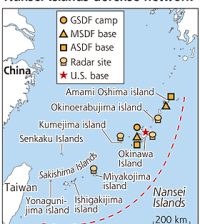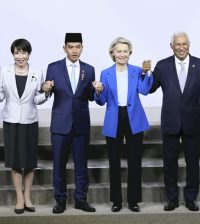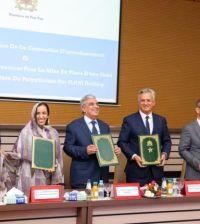- Washington “follows with interest” Morocco’s openness onto Africa (John Kerry)Posted 12 years ago
- The trial of South African Paralympic champion Oscar Pistorius opened in Pretoria on Monday.Posted 12 years ago
- USA welcomes efforts of King Mohammed VI in MaliPosted 12 years ago
- Egypt’s population reaches 94 millionPosted 12 years ago
- Mugabe celebrates his 90thPosted 12 years ago
- Moroccan Monarch to Build a Perinatal Clinic in BamakoPosted 12 years ago
- King Mohammed VI handed a donation of bovine semen for the benefit of Malian breeders.Posted 12 years ago
- Moroccan King’s strategic tour to Africa: Strengthening the will of pan African Solidarity and stimulating the south-south cooperation mechanisms over the continentPosted 13 years ago
- Senior al-Qaida leader killed in AlgeriaPosted 13 years ago
- Libya: The trial of former Prime Minister al-Baghdadi AliPosted 13 years ago
Les « Générations Z et Alpha » face à la ruse psychopolitique : vers une fracture intergénérationnelle ?
By REZRAZI EL MOSTAFA :
This article examines the rise of an intergenerational fracture in the digital age by bringing together insights from generational sociology, psychoanalysis, and psychopolitics. Following a critical review of generational taxonomies (Baby-boom, X, Y, Z, Alpha), the notions of digital natives/migrants and their analytical limits, the study proposes an integrated theoretical framework in which three psychic mechanisms—projection, regression, and symbolic parricide—shed light on how Generations Z and Alpha reshape their relationship to the past and institutions. The concept of psychopolitical ruse here refers to the transformation of real frustrations (employment, climate, inequalities) into binary and mobilizing narratives, amplified by digital platforms, which create the illusion of emancipation while reproducing renewed forms of symbolic dependence and affective governance.
Empirically, a focus on Morocco’s “Generation Z 212” highlights a significant demographic weight but one marked by structural vulnerabilities (unemployment, underemployment, NEET), which fuel dynamics of rupture and the hybridization of mobilizations (online/offline). The analysis identifies the psychological consequences (eco-anxiety, identity instability), the social ones (erosion of transmission, atomization of belonging), and the political effects (populist capture of youth grievances, attention economy).
The article concludes with prescriptive avenues for a renewed intergenerational pact: symbolic and memorial mediation mechanisms, strengthened inclusion policies (education/employment/health), and civic uses of digital technologies oriented toward the co-construction of shared narratives. Rather than opposing past and future, the challenge lies in transforming the energy of rupture into a cumulative project, grounded in mutual recognition, critical continuity, and collective resilience.




